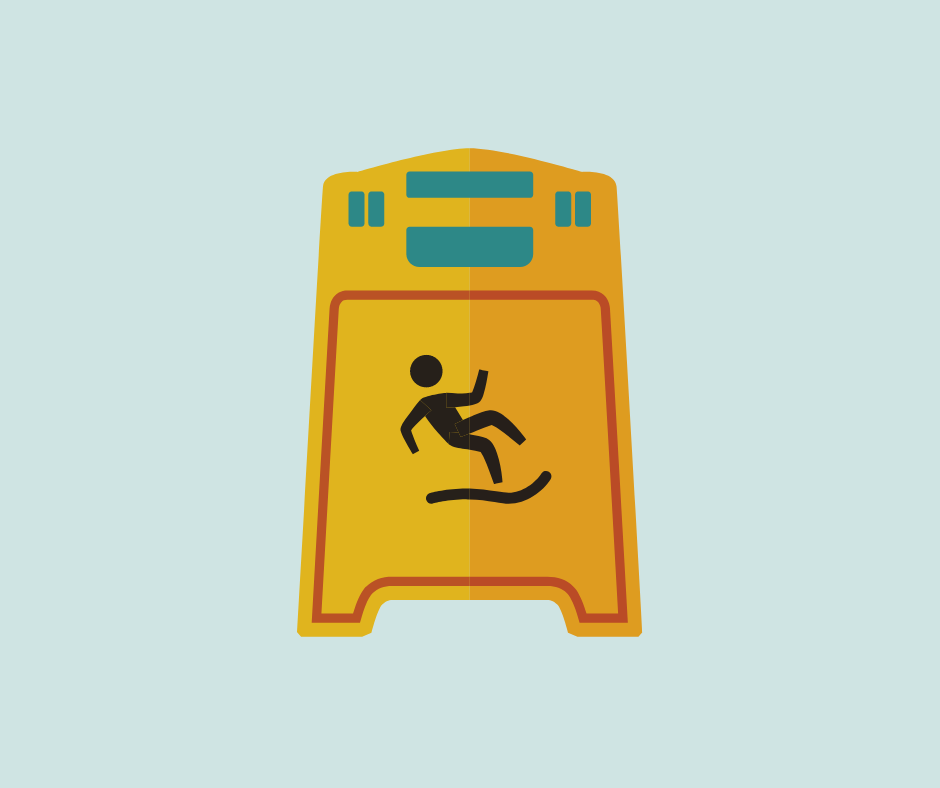News — care

November is Osteoporosis Month!
What is Osteoporosis?
Osteoporosis is a disease in which individual's present low bone mass and their bone tissue deteriorates. Ultimately, this increases the risk of fractures to the bones, with the most common being hip, spine, wrist, and shoulder.
Who is Affected?
Canadians are most often affected over the age of 50, however osteoporosis can affect anyone. Approximately two million Canadians are diagnosed with osteoporosis. 1 in 3 women and 1 in 5 men will experience a fracture due to their osteoporosis.
What Treatment is Available?
There is currently no cure for osteoporosis but treatment options are available to help reduce the loss of bone mass and the risk of fractures. The treatment options that exist are typically medications and individuals can speak to their doctors about finding what will work best for them.
Another important role in the treatment process is to maintain a healthy level of vitamin D and calcium within your diet. This will help to maintain healthy bones and should be done proactively throughout your life to reduce the risk of osteoporosis.
How can you Support People with Osteoporosis?
Be a person of support for a loved one with osteoporosis. Many individuals do not know they have osteoporosis because it is quite asymptomatic prior to a fracture. Be a source of encouragement for your loved one and support them if they experience a fracture. Encourage them to eat a healthy diet rich in Vitamin D and Calcium, and do so yourself. Participate in activities together that are safe for both of you. Join a support group if you are seeking more help or advice from others or need someone to lean on. There are many resources available through Osteoporosis Canada.
Osteoporosis and Dementia
Research has found that osteoporosis and dementia are more prevalent in women. As such, it is important to stay informed of the risk of osteoporosis. If you are a care partner of a person living with dementia, ensure they continue getting the right nutrients. If you begin to think their bones are not as strong as they used to be or have experienced a fracture, it's important to speak with your doctor to have them tested for osteoporosis. Stay aware, informed, and know the risks involved. This will help to make the transition easier and to maintain your loved one's overall health.
What do you do to support people living with osteoporosis? Share with us in the comments below!
References
Osteoporosis Canada (2019). What is osteoporosis? Retrieved from https://osteoporosis.ca/about-the-disease/what-is-osteoporosis/
Osteoporosis Canada (2019). Treatment. Retrieved from https://osteoporosis.ca/about-the-disease/treatment/

Celebrating Digital Health Week
This week, November 11-17, is Digital Health Week! The Canadian health care system continues to transform due to technological advances. This means that individuals are now able to access their results, attend appointments easier and virtually, and for doctors to access patient information more efficiently. Today we touch on how making this shift to digital health will offer more opportunities for the health care system as well as for individuals.
Digital health includes using technology to improve health care and offer more efficient, effective services for individuals. Digital health can be confidently shared amongst healthcare practitioners and clinics. It helps to keep track of an individual's health care and data without the hassle of paperwork. A client's healthcare record can be easily accessed and test results can be viewed much faster, meaning improved care for individuals.
For individuals living with dementia, this might help to transfer this information from memory clinics to their general practitioner as well as monitor cognition over time. As many individuals see a variety of doctors for their dementia diagnosis, it allows practitioners with faster results and an easier look into the individual's file.
While this process is still transforming, some clinics have taken the leap to shift to digital health records to keep track of their files.
What are your thoughts on digital health? Share with us in the comments below!
References
Canada Health Infoway (2019). What is digital health? Retrieved from https://infoway-inforoute.ca/en/what-we-do/benefits-of-digital-health/what-is-digital-health

Caring from a Distance
Are you a family member, friend, or care partner who is caring for a loved one with dementia from afar? Do you find it challenging to stay in touch with your loved one and offer your care remotely? This post is just for you.
Tips for Preventing Falls
Approximately 20-30% of Canadians over the age of 65 fall each year. Many of these falls can be prevented by taking simple steps to ensure safety. We share tips for preventing falls.
Reduce Obstacles around your Home
The most preventable method to reduce the risk of falling is to clean up obstacles around your home that may increase the risk of tripping or slipping. For example, tidy up any clutter around your house and keep it away from your walking paths. Remove any rugs around your home that might be easily tripped over or secure them to the floor. A fun way to help declutter is to analyze your home with family members or friends and create a 'scavenger hunt' activity to identify any areas of concern.

Install Grab Bars or use Assistive Devices where Needed
Grab bars and assistive devices should be used for prevention, meaning it is a good idea to install them prior to any accidents occurring. For example, grab bars are easy to install near toilets, sinks, showers and bathtubs, or in your bedroom. They are a cost effective item that can be that extra support when you might need it most. If you begin noticing concerns moving throughout your home, think about using an assistive device, such as a cane or walker. Speak to your doctor about what you are experiencing and what they recommend for you. There are many resources available to help cover the costs of assistive devices, inquire about these options prior to purchasing a brand new item.
Practice Balance Exercises
If you are willing and able, balance exercises are a great way to prevent falls and to maintain your physical health. Make an appointment with a physical therapist to learn some new balance exercises that you can implement throughout your day. These simple exercises can be carried out anywhere and are a great way to start your day.
Wear Proper Footwear
Purchase a supportive, non-slip shoe that will help to reduce the chances of falling. Even if you are heading out the door to quickly grab something, always ensure you are wearing proper footwear. Investing in a good pair of shoes is definitely worth it and helps keep you safe.

Ensure Proper Lighting throughout your Home
With the change of seasons, there is also a change in sunlight. Setup your home so that there is adequate lighting and if you feel it is difficult to see at times, install more lamps throughout your home. LED lights are much brighter, last longer, and are much more efficient. Consider installing LED lights in your home. Additionally, leave a light on when you go to bed. In the case nature calls overnight, this way you will have light to help guide you. Another way to help light your home is through the use of nightlights or lights for your outlets. Adequate lighting in your home is important not to trip over anything and to see where you are going.

Place Non-Slip Mat in the Shower or Bathtub
This is a great installation no matter your age! Non-slip mats help to protect us when getting into and out of the shower or bathtub and provide an extra cushion throughout. They are a great safety feature to install and are relatively low in cost.
Maintain a Healthy Diet and Stay Hydrated
Individuals who might not be getting all of their nutrients or are dehydrated often feel faint or dizzy. A way to avoid these feelings especially with age is to maintain a healthy diet and to stay hydrated. Ensure you are getting the proper nutrients you need and keep an eye on your sugar levels and your blood pressure.

Recognize any Side Effects from Medications
If you recently started a new medication and notice feelings of faintness or dizziness, reach out to your doctor and express these side effects. They can help to mitigate these side effects or change your medication so that you have a lower risk of falling.
Learn how to Fall Safely
Lastly, if you ever encounter a fall, it is important to know how to fall safely to reduce the risk of injury. Speak with your doctor or physiotherapist on tips to falling properly and safely. These most often include staying in a bent position, protecting your head, and positioning your body in a way that will lead to the least amount of injuries. Do not be afraid of falling but rather know how to fall and prevent injuries before they happen.

What do you do to prevent falls? Share with us in the comments below!
References
Government of Canada (2014, April 10). Seniors' Falls in Canada: Second Report. Retrieved from https://www.canada.ca/en/public-health/services/health-promotion/aging-seniors/publications/publications-general-public/seniors-falls-canada-second-report.html#s1

Dementia and Depression
Depression is defined as lower mood, sadness, loss of interest and enjoyment in things, and a reduction in energy over the course of at least two weeks. Many persons experience depression or periods of depression over their lifetime. In fact, approximately 40-50% of individuals living with dementia experience depression at some point in their journey. Therefore it is important to recognize the symptoms of depression to better support and care for your loved one or relative with dementia.
The symptoms of depression are quite similar to those in dementia, including loss of interest, decreased mood, difficulties sleeping, an increase in confusion, and loss of appetite. However, this does not mean that the symptoms are the same and that persons living with dementia also have to live with depression for the rest of their lives. There are ways to help mitigate depression and cope with the diagnosis once you recognize the symptoms. If you begin to notice any of these symptoms or an increase in these symptoms, it is important to speak with your doctor and explore resources that will help your loved one.

Depression might arise due to a recent diagnosis of dementia, social isolation from activities your loved one previously participated in, embarrassment, increased fatigue, or side effects from prescribed medications. As a care partner, it is important to support your loved one and understand what they are going through. Encourage participation in new activities, develop a new routine, and know their limits. In doing so, this will not only better cope with feelings of depression but also help to reduce some of the symptoms associated with dementia. Individuals living with dementia should continue to participate in social and physical activities to remain cognitively stimulated and physically healthy. Physical activity, even a short walk in a nature setting, can increase endorphins, ultimately boosting a person's mood. This is not only beneficial for a person living with dementia, but also for care partners to help reduce stress.

While depression and dementia are difficult topics to approach in conversation, it is important to seek help earlier rather than later to gain support and find ways to cope. Simply asking how your loved one is really feeling and having a meaningful conversation with them might help to start the discussion on depression and dementia. Encourage individuals to share with you and support them in ways that they want to be supported. Persons will not accept help if they do not believe they need it. Be caring, kind, and understanding and do not be afraid to start the conversation.
References
Alzheimer Society of Canada. (2017, November 8). Depression. Retrieved from https://alzheimer.ca/en/Home/Living-with-dementia/Understanding-behaviour/Depression
heretohelp. (2013). Mental Health. Retrieved from https://www.heretohelp.bc.ca/infosheet/seniors-and-depression-the%20difference-between-depression-and-dementia
Muliyala, K. P., & Varghese, M. (2010). The complex relationship between depression and dementia. Annals of Indian Academy of Neurology, 13(2), S69-S73.
World Health Organization. (1992). The ICD-10 classification of mental and behavioural disorders: Clinical descriptions and diagnostic guidelines. Geneva: World Health Organization.

Refusing to Bathe
Many care partners face the challenge of encouraging and maintaining their loved ones' personal hygiene. Unfortunately this can be a difficult discussion to have and it is important to approach the subject in a kind, caring way. It is important to maintain personal hygiene to maintain one's overall health.
Many persons with dementia might refuse to wash as they are unaware of their personal hygiene situation or may have forgotten that they have not showered. Some individuals might become frustrated or confused when told to bathe. It is important not to use a negative tone when approaching this conversation.
Approach bathing in a positive way
This is much easier said than done. Approach bathing or showering in a positive way and avoid making your loved one feel embarrassed. Encourage them to bathe in a kind manner as opposed to forcing them to bathe or raising your voice. Kindly guide them to the bathroom with all items prepared and encourage them to wash.

Lead by example
Another way to approach bathing is by demonstration. If you encourage them to bathe or shower as you are going to or have already done so, this will make the task feel less daunting. Individuals with dementia might need to see that others are doing it too before they can do it. One way to approach this is to say, "I just got out of the shower, do you want to shower now? It's available."
Involve them in laundry and hygiene tasks
Ask them for help. Persons with dementia still want to feel that they are contributing and what better way then to participate in chores together. Even if they are not as helpful as you would like, encourage them to carry some items to the laundry room or to change into clean clothes after they shower. Ask them if they'd like to help gathering up the dirty clothes and ask if they need to put on a fresh outfit, then lead into having a shower or bath.

Ensure an accessible setup
Visuospatial skills are affected when a person has been diagnosed with dementia. Sometimes we might not notice this, but if your loved one has to step over the edge of the shower or there is a bathmat outside of the shower, this might look as though it is a much larger step and be quite daunting for persons with dementia. If individuals require more assistance, think about installing grab bars or seats in your shower to make it more accessible. If persons with dementia feel the shower setup is not safe for them to use, they simply won't use it.
Offer incentives
Purchase a new shower product for your bathroom. Ask your loved one with dementia if they have seen a new product you purchased and lead them into the bathroom. While in the bathroom, ask if they would like to try it out and bathe or shower. Sometimes this draws their attention to a new item and individuals might want to shower to use this. Another incentive is to setup a radio on your bathroom counter and play their favourite music. This might help to ease their mind and put them in a happier mood. As a result, they might be more willing to shower alongside their favourite song.

Schedule baths and showers on your daily calendar
Hang a calendar in your bathroom or in another room in the house. Write down on the calendar the days you plan on showering and encourage your loved one to have their name on the calendar too. This creates a reference point for persons with dementia as you encourage them to shower on Tuesday, you can look to the calendar and hold them accountable. Developing a routine is important for persons with dementia and makes tasks seem familiar to them, in which they will most likely continue to follow this routine without hesitations.

Bathe prior to events
If you and your loved one with dementia attend a weekly social group, run errands together, or visit family members, encourage them to bathe prior to these events. Approach this by getting ready together and reminding them that they want to look fresh for a new day. Choose an outfit for them to wear that makes them feel comfortable and confident. Encourage them to change into the outfit once they have bathed. Hold them accountable for this and do not leave the house until they have gotten ready.
Consider hiring help
If you have tried many of these strategies, or your loved one with dementia might need more assistance bathing than you can provide, it might be time to consider hiring help. There are many home care companies who bring employees into the home, build a relationship, and help to bathe your loved one with dementia if they need further assistance. This also offers care partners with an hour or two to get caught up with things around the house or to take a break. Reach out to the Alzheimer Society, home care companies or your local LHIN and see what options there are for you and your loved one.
Helpful Resources:
Ontario LHINs: http://www.lhins.on.ca
Alzheimer Society of Ontario: https://alzheimer.ca/en/on
Community Support Connections: https://communitysupportconnections.org/services/care-coordination/
Home Care Assistance: https://homecareassistance.com

Medical Assistance in Dying for Persons with Dementia in Canada
In June of 2016, the Parliament of Canada passed a federal law that Canadians would be able to request medical assistance in dying. Physicians and sometimes nurse practitioners are the only ones who can provide medical assistance in dying, if they feel comfortable in that situation. This law is specifically for persons who live with chronic illnesses that are incurable and involve an immense amount of physical and mental suffering.
The current law does not allow for persons living with any mental illnesses, including dementia, to make decisions about assisted death. This law states that persons must be competent upon making this advanced decision and right before medical assistance in dying. While people with dementia are typically quite competent in the early stages, unfortunately as their dementia progresses, they are no longer seen as competent enough to make decisions about their end of life requests. This poses a variety of challenges for people living with dementia and their families. Many persons living with dementia are challenging this law as a way to take charge of their lives and make requests based on their own choices.
There are many challenges to this as persons with dementia should make their own choices about their health but need to be provided with a safe, legal space. Some persons with dementia feel that they want to take control of their dementia and receive medical assistance in dying prior to late stage dementia. Others might not want their relatives to make decisions for them. Many challenges can arise if others make decisions on their behalf, and it is important for persons with dementia to have their wishes heard and understood. Some relatives might abuse this advanced request and it is important to know that many persons with dementia live well in their communities for many years after diagnosis, and it would be upsetting for them to receive medical assistance in dying if they did not make that choice. This becomes a difficult conversation to have.
In order for persons living with dementia to receive medical assistance in dying, the law must change. But it is a challenging situation, as many persons with dementia deserve to have rights, but also deserve to be treated equally and fairly by the people closest to them. To begin this discussion, it is important to discuss your health wishes with your loved ones early, this may be before diagnosis or immediately after diagnosis. Meet with a legal consultant and inform them about your wishes about your own health. That way, the family has this information legally written down and understands a person's wishes in the future. While medical assistance in dying at this time is not possible for people living with dementia, it is important to understand that many persons living with dementia can live well in their communities for many years, with the support of various resources that are made available to them. Thus, at the present time, support your loved ones with dementia and help to maintain or improve their quality of life. Reach out to others for support and have a discussion with your physician about various resources and options fit for your situation.
References
Alzheimer Society of Canada (December 12, 2018). Medical assistance in dying for people with dementia: Position statement. Retrieved from https://alzheimer.ca/sites/default/files/files/national/position-statements/medical-assistance-in-dying-for-people-with-dementia.pdf
CBC News (September 29, 2018). Ontario man with dementia on crusade to plan his own death. Retrieved from https://www.cbc.ca/radio/thesundayedition/the-sunday-edition-september-30-2018-1.4841264/ontario-man-with-dementia-on-crusade-to-plan-his-own-death-1.4841267
Government of Canada (April 25, 2019). Medical assistance in dying. Retrieved from https://www.canada.ca/en/health-canada/services/medical-assistance-dying.html

Redirection for Persons with Dementia
As many care partners know, your loved one with dementia might become frustrated, confused, and stubborn from time to time as a result of their dementia. Today, we share tips on how to redirect persons living with dementia to better support them and maintain a calm atmosphere.
Managing Care with Multiple Care Partners
Are you feeling stressed as a care partner trying to manage your loved one's care alongside your family or friends? This can be a difficult situation to solve, but with organization, communication, and honesty, the process can be much smoother for everyone involved.
1. Stay Organized
The most important aspect to consider is organizational skills. Do you have multiple care partners helping out throughout the week? Create a schedule for care partners but also for your loved one with dementia to ensure everyone stays organized and knows their expectations. It is important to keep the person receiving care at the forefront of their care so that they understand who is taking them where or who is coming to visit them. Let them make choices about their own care.

Plan a meeting and write down your schedules to avoid misunderstandings and keep everyone on track with the care plan. This also makes it easier if someone is no longer able to help out and can reduce frustrations for everyone. Keeping a whiteboard calendar in your house can help with managing schedules.
2. Have Open Communication Often
Communication is essential to reduce stress, keep everyone informed, and reduce any conflicts that may arise. Living in the age of so much technology, use it to your advantage. Create group chats via text, Facebook, emails, etc. to stay in touch and to ensure everyone knows what is happening. This way, it reduces any time conflicts and lets everyone be a part of the conversation.
3. Be Honest
Is one member feeling much more stressed than others? Have an honest, open conversation about how you are feeling to limit negative situations. If members of the care team are stressed, the person receiving care will also feel stressed.

While this might be a difficult conversation to have, it is important to ensure that everyone, including all care partners are feeling understood and equal. Caring should be fair to everyone, and sometimes one person might feel like they are doing all the work with no space for themselves.
4. Maintain Relationships
Don't let your care plan interfere with your previous relationships. You are working as a team to support your loved one with dementia. Care with love, openness, and mutual understandings. Remember that while caring can be burdensome at times, it is also so rewarding and comes from a place of love and support.
What are some of your strategies for caring with multiple care partners? Share with us in the comments below.

Are you feeling forgotten?
Has your loved one with dementia progressed along their journey? Are you finding they are no longer recognizing you and are you feeling forgotten? Unfortunately this experience is quite real for many persons living with dementia and their relatives and friends. But it doesn't have to be a negative experience. There are ways to support both yourself and your loved one throughout this next chapter.

A person with dementia is still themselves
Individuals living with dementia are still themselves and they are still here. It is up to us to recognize them, and not for them to always recognize us. They are still able to interact, whether verbal or non-verbal and you can still connect no matter how far along you are on the dementia journey. Reflect on all of the special moments you've had throughout your lives and continue to connect even in this chapter.

Be there for them
Relatives might find this experience difficult to cope with and may no longer want to visit with them if their loved one no longer recognizes them. Doing this might only perpetuate the lack of recognition. However, visiting will still help them to remember you, your voice, or how your hand feels in theirs. Continue to connect and you'll be surprised when you connect over a look, a wink, or a touch of the hand.
The power of touch
While they may no longer be able to verbally say who you are or might seem disinterested in the conversation, know that persons living with dementia are still able to connect. There are many benefits through touch, whether through a hug, touch of a hand, or pat on the back.

It's not their fault
Avoid blaming the person with dementia with their lack of recognition. It's not their fault that they might struggle expressing your name or who you are to them. Avoid phrases such as, 'do you remember me?' Or 'what's my name?' This might only contribute to further frustrations. Instead, tell your relative with dementia who you are and greet them as you always have, while maintaining their personhood.
Do you have any special moments with your loved one with dementia you'd like to share? Comment in the box below.

Tips for Travelling with Dementia
Planning on travelling with your loved one with dementia this long weekend? Whether it's a short trip or a long trip, we are sharing some tips on how to make it the most comfortable experience for everyone.

Practice Patience
It is important to remain patient during your trip or tensions might be high during your trip. Give yourself extra time whether you are driving or flying. Giving yourself more time to get to where you need to be will reduce stress and keep everyone in a better mood as there is not as much of a rush to get there on time.
Stay Relaxed
If you notice that you or your loved one is becoming stressed, recognize this and practice coping methods to reduce this stress. Taking a few deep breaths or pausing for a minute or so will help to feel refreshed and a bit calmer. Perhaps listen to your favourite music for a bit and boost your mood.
Go with the Flow
This is much easier said than done. If things aren't going quite your way, take a deep breath and let things happen how they might continue to happen. Try to maintain composure if the trip might not be going your way and keep your focus on keeping your loved one with dementia relaxed and comfortable. Becoming frustrated and short will only worsen the situation and make a person with dementia feel that much worse. Brush it off, laugh it off, and make the most out of your trip.
Stay Organized and Be Prepared
Preparing for the trip is of utmost importance to have a trip go smoothly. Think of the unthinkable and ensure everything is organized prior to leaving. Be prepared and pack activities to do, such as a Marlena Book, music, word games, or anything that might bring your loved one comfort. Pack some snacks and drinks for the journey. Ensure to have medications, an extra change of clothes, and any other health related items easily accessible.

Check In
Continue to check in on your loved one, are they thirsty? Hungry? In need of a restroom break? Check in and ensure their comfort. This will lead to a better trip and might help reduce any negative experiences.
Stay Together
Ensure to stay together and do not separate too far from one another. Places that are unfamiliar to persons with dementia might cause frustration and be overwhelming. Having a familiar person alongside them for the journey will help them feel relaxed and comforted.
Flying
If you are flying, there are some important things to remember. If walking might be challenging, arrange for a wheelchair on the flight and have an attendant assist you and your loved one on and off the plane. Keep all important documents with you and easy to access to reduce the stress of losing items. Arrange a flight that will be comfortable for a person with dementia, whether that be at a good time of day for them, no layovers, or extra leg room, there are many considerations to be made before flying to ensure comfort. Speak to a travel agent prior and disclose their dementia journey to review options that might be available to make for an even better trip.

Have Fun and Create Memories
Whether the trip doesn't go the way you planned, the importance is the journey. Have fun spending time together and creating memories you might not have if you stayed home. Time goes by fast, so don't get caught up in the minimal things, but look at the bigger picture and enjoy the moment. Once you reach the destination, relax! You've made it! Have fun and enjoy vacation together!
Do you have any tips or tricks for travelling? Share with us in the comments below!


